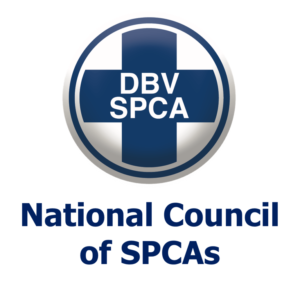The city of Cape Town, South Africa, finds itself grappling with a bad smell that has permeated its streets, raising concerns among residents. Residents of Cape Town have been left reeling from what they describe as a ‘nauseating’ stench that has engulfed the city.
Lerato Bashing, a 29-year-old resident, expressed her shock at encountering the worst smell she has ever experienced. The source of this odour has been traced back to the Al Kuwait ship, which has been anchored in the port since Sunday evening. This vessel, carrying a staggering 19,000 cows, has become the focal point of public attention and concern.
The Al Kuwait Ship
 The Al Kuwait ship, en route from Brazil to Iraq, made a stopover in Cape Town to replenish feed for the cattle on board. However, the stopover has garnered significant attention due to the intense smell emanating from the ship.
The Al Kuwait ship, en route from Brazil to Iraq, made a stopover in Cape Town to replenish feed for the cattle on board. However, the stopover has garnered significant attention due to the intense smell emanating from the ship.
The conditions under which the animals are confined have raised questions about their welfare and the ethical implications of live animal transportation by sea.
Concerns have been further worsened by reports from the National Council of Societies for the Prevention of Cruelty to Animals (NSPCA), which indicate distressing conditions onboard the vessel.
Cape Town’s Response and Concerns
 In response to the public outcry, city officials have moved swiftly to address the issue. Zahid Badroodien, the city’s official in charge of water and sanitation, has reassured residents that measures are being taken to mitigate the odour.
In response to the public outcry, city officials have moved swiftly to address the issue. Zahid Badroodien, the city’s official in charge of water and sanitation, has reassured residents that measures are being taken to mitigate the odour.
Plans have been put in place for the ship to depart on Monday night, alleviating some of the concerns raised by residents. However, the lingering impact of the smell on public health and well-being remains a pressing issue, with residents expressing distress over its persistence.
NSPCA’s Stance and Advocacy
The NSPCA, a leading animal welfare organization, has been vocal in its opposition to live animal exports by sea. The organization has raised concerns about the distressing conditions faced by animals during transportation, highlighting the inherent risks and ethical considerations involved.
This incident serves as a poignant reminder of the need for stricter regulations and oversight in the maritime transportation of live animals at Cape Town. The NSPCA’s advocacy efforts to end this practice are crucial in ensuring the protection and welfare of animals.
The situation surrounding the Al Kuwait ship in Cape Town serves as a poignant reminder of the multifaceted challenges inherent in live animal transportation by sea. While the immediate focus is on addressing the distressing odour and ensuring the well-being of both residents and animals, the incident prompts broader reflections on maritime transportation practices, animal welfare standards, and ethical considerations.
As efforts are underway to mitigate the immediate impact of the odour and facilitate the departure of the ship, it is important for stakeholders to engage in constructive dialogue and collaboration. City officials, advocacy groups, maritime authorities, and industry stakeholders must come together to reassess existing regulations and practices governing the transportation of live animals.
 This includes strengthening oversight mechanisms, implementing stricter welfare standards, and exploring alternative methods of transportation that prioritize the humane treatment of animals.
This includes strengthening oversight mechanisms, implementing stricter welfare standards, and exploring alternative methods of transportation that prioritize the humane treatment of animals.
Moreover, the incident outlines the importance of raising public awareness and promoting a culture of compassion and responsibility towards animals.
Education campaigns, outreach initiatives, and public forums can play a vital role in promoting informed discourse and empowering individuals to advocate for positive change.
The incident involving the Al Kuwait ship in Cape Town serves as a catalyst for reflection, action, and advocacy. By addressing the immediate challenges while also addressing the underlying systemic issues, we can work towards a more humane, ethical, and sustainable approach to maritime transportation that respects the dignity and welfare of all living beings.
Through collective efforts and a shared commitment to compassion and accountability, we can strive towards a future where animals are treated with the care and respect they deserve.
ALSO READ: African Union unveils statue honouring former Tanzanian leader Julius Nyerere










